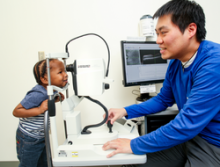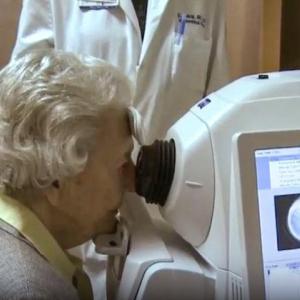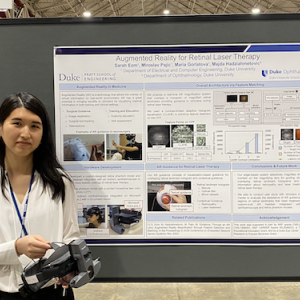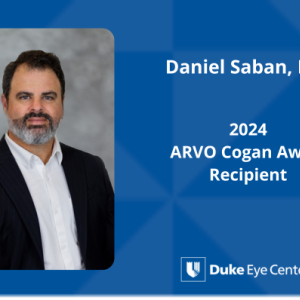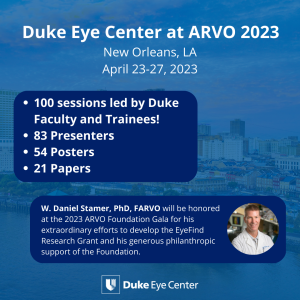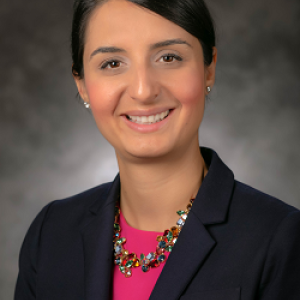Bench to Bedside and Back
Preserving and restoring sight for patients suffering blinding eye disease is the core of the Duke Ophthalmology research mission.
Duke Ophthalmology aims to discover important new knowledge about biology of the eye, gain better understanding about the causes, mechanisms, diagnosis and treatment of eye disorders, translate research innovations into new care modalities and to train the next generation of researchers.
Research at Duke Ophthalmology is by no means isolated in a single laboratory or subspecialty - it’s embedded in every patient visit. Truly “bench to bedside and back.” The central location of the largest multi-disciplinary Duke Eye Center clinic, the Albert Eye Reserach Institute, which houses research facilities, and proximity to Duke University campus allows a multi-dimensional, approach -- making Duke Eye Center an international leader in ophthalmic research.
There are two types of research which are inter-related and continuously in progress within Duke Ophthalmology.
Research News
Algorithm Aids in Early Detection of Age-Related Eye Disease
Malek receives Rosalind Franklin Society Awards in Science for Journal of Ocular Pharmacology and Therapeutics
Machine Learning Model Identifies Mild Cognitive Impairment from Retinal Scans
DURHAM, N.C. – A machine learning model developed by Duke Health researchers can differentiate normal cognition from mild cognitive impairment using retinal images from the eye.
Lad named Vice Chair for Clinical Research
Duke PhD Student Presents Research on Utilizing AR Guidance System in Retinal Laser Therapy
Duke Vision Scientist Receives Top Honor from ARVO
Duke Eye Center at ARVO 2023
The annual meeting for the Association of Research in Vision and Ophthalmology (ARVO) will be held April 23-27 in New Orleans, LA. There will be 100 presentations by Duke faculty and trainees. Paloma Liton, PhD and Anthony Kuo, MD served on the 2023 ARVO Meeting Planning Committee.
A New Era in Dry AMD Treatment
Duke Ophthalmology Ranks 10th Nationally in NIH Funding
Duke School of Medicine has received more than $527 million in federal funding from the National Institute of Health (NIH) in 2022, ranking ninth nationally, according to the Blue Ridge Institute for Medical Research. Duke Ophthalmology is one of eight clinical science departments and two basic science departments in the School of Medicine to rank among the top 10 in the country - receiving over $10 million in NIH funding in 2022.
Duke is the Lead Site for Atmosphere and Ascent Trials
Duke Eye Center is participating in two pivotal gene therapy clinical trials, ATMOSPHERE and ASCENT that may become promising treatments for age-related macular degeneration. The studies, are large multisite trials, and Duke is the lead site for ASCENT and Lejla Vajzovic, MD is the lead PI for the trial.

